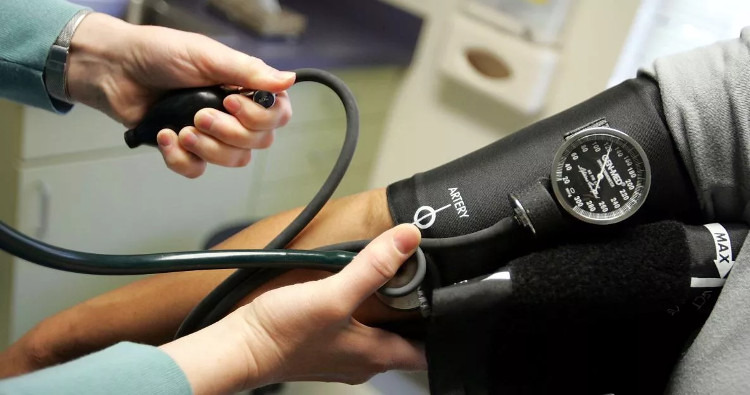More than 1 billion people worldwide have high blood pressure
The world currently has 1.13 billion people living with high blood pressure, mainly concentrated in Asia and Africa.
According to Majit Ezzati, professor of environmental health at Royal London University in the Lancet on November 15, the number of people with high blood pressure has almost doubled between 1975 and 2015. In most In countries, men are more prone to hypertension than women.
China and India are the two countries with alarming high blood pressure patients with 226 million and 220 million people respectively.
"In Asia, life expectancy increases with high blood pressure," Ezzati explained. He added this phenomenon due to restrictions on fresh and clean food as well as access to health services. The data show "blood pressure related to poverty".

In Asia, life expectancy increases with increased blood pressure.(Photo: The Guardian).
High blood pressure is defined as a systolic blood pressure of 140 mm Hg or more and / or diastolic pressure of 90 mm Hg or more. The World Health Organization (WHO) estimates high blood pressure causes 7.5 million deaths a year, equivalent to 13% of deaths worldwide. There are many causes that increase the risk of diseases such as overeating and excessive potassium, exposure to lead due to air pollution, lack of diagnosis and timely treatment or carrying genetic genes. In addition, malnourished children are more prone to adult hypertension.
In 2011, the WHO set a goal to reduce blood pressure by 25% by 2025, but Ezzati said the incidence will continue to increase in the next few years. High blood pressure is gradually becoming a more dangerous threat than obesity and diabetes because it can lead to stroke, cardiovascular disease, and kidney disease.
In order to improve blood pressure development, Ezzati believes it is necessary to develop strategies to strengthen fresh fruits and vegetables and aid in nutritional needs. "In fact, people in poor countries don't get enough calories well," the professor said. "Must give priority to fresh and healthy food to them" . In addition, every country needs to improve its diagnosis system, treat high blood pressure because "prevention is not enough".
- What is high blood pressure for each subject?
- Find out the secret of increasing blood pressure
- Sleep immediately after lunch is prone to high blood pressure
- There is a link between sleep and high blood pressure
- Find a simple 'medicine' to treat high blood pressure
- What should I pay attention to on New Year's Day?
- High blood pressure is
- High blood pressure in children
- High blood pressure increases the risk of dementia in middle age by 45%
- Use blood pressure monitor properly
- Eating habits affect high blood pressure
- 9 foods that help lower blood pressure
 Green tea cleans teeth better than mouthwash?
Green tea cleans teeth better than mouthwash? Death kiss: This is why you should not let anyone kiss your baby's lips
Death kiss: This is why you should not let anyone kiss your baby's lips What is salmonellosis?
What is salmonellosis? Caution should be exercised when using aloe vera through eating and drinking
Caution should be exercised when using aloe vera through eating and drinking